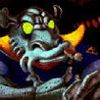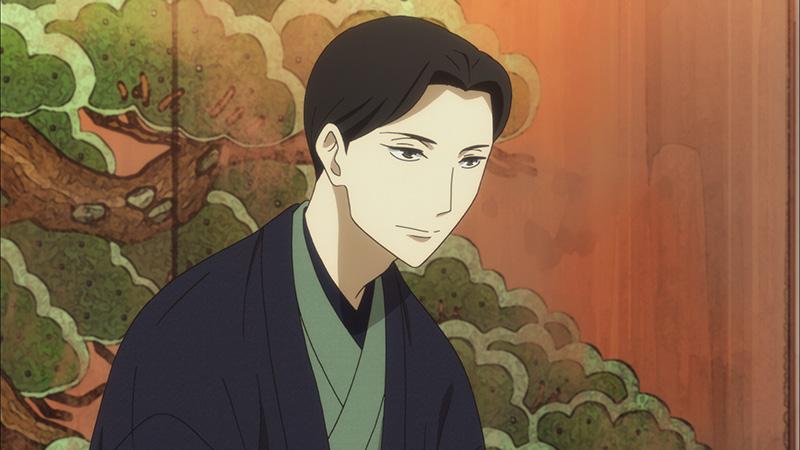4 anime that help you understand about Japanese culture
How about understanding about Japanese culture through anime
There are hundreds of anime in Japan. I really love to watch anime, and recently there are some anime coming that are based on Japanese traditional cultures.
Japanese people seem to re-evaluate on their our culture once again recently.
For example, "火ノ丸相撲 (Hinomaru zumo)", the popular comic in Jump weekly comic magazine is based on Sumo culture that is one of the most famous typical Japanese cultures.
In this article, I will introduce you best 4 anime that help you understand about Japanese culture.
I assure you if you look at these anime, you can understand more about Japanese traditional cultures!
Japanese people seem to re-evaluate on their our culture once again recently.
For example, "火ノ丸相撲 (Hinomaru zumo)", the popular comic in Jump weekly comic magazine is based on Sumo culture that is one of the most famous typical Japanese cultures.
In this article, I will introduce you best 4 anime that help you understand about Japanese culture.
I assure you if you look at these anime, you can understand more about Japanese traditional cultures!
KABUKIBU / カブキブ!
Kabukibu! (カブキブ!?) is a light novel series written by Yūri Eda, with illustrations by Ishinoya. The series began on August 24, 2013 and has since collected five volumes, published by Kadokawa Shoten as of December 2016. The series is about Kurogo Kurusu, a boy who is obsessed with kabuki and decides to form a kabuki club at his high school. A manga adaptation by Chizu Kamiko is being serialized on Kadokawa Shoten's Young Ace since March 2017. A 12-episode anime television series adaptation by Studio Deen (with original character designs by CLAMP) has been set to premiere on April 6, 2017.
Source: Wikipedia
Hikaru no Go / ヒカルの碁
Hikaru no Go (ヒカルの碁?, lit. "Hikaru's Go") is a Japanese manga series based on the board game Go, written by Yumi Hotta and illustrated by Takeshi Obata. The production of the series' Go games was supervised by Go professional Yukari Umezawa. It was serialized in Weekly Shōnen Jump from 1998 to 2003, with the chapters collected into 23 tankōbon volumes by Shueisha.
It was adapted into an anime television series by Studio Pierrot, that ran for 75 episodes from 2001 to 2003 on TV Tokyo, with a New Year's Special aired in January 2004. Viz Media released both the manga and anime in North America; they serialized the manga in Shonen Jump in addition to releasing its collected volumes in entirety, while the anime aired on ImaginAsian in addition to a DVD release that was cancelled prematurely.
Hikaru no Go was well-received, with over 25 million copies in circulation and winning the Shogakukan Manga Award in 2000 and the Tezuka Osamu Cultural Prize in 2003. It is largely responsible for popularizing Go among the youth of Japan since its debut,[1] and considered by Go players everywhere to have sparked worldwide interest in the game, noticeably increasing the Go-playing population around the globe.
It was adapted into an anime television series by Studio Pierrot, that ran for 75 episodes from 2001 to 2003 on TV Tokyo, with a New Year's Special aired in January 2004. Viz Media released both the manga and anime in North America; they serialized the manga in Shonen Jump in addition to releasing its collected volumes in entirety, while the anime aired on ImaginAsian in addition to a DVD release that was cancelled prematurely.
Hikaru no Go was well-received, with over 25 million copies in circulation and winning the Shogakukan Manga Award in 2000 and the Tezuka Osamu Cultural Prize in 2003. It is largely responsible for popularizing Go among the youth of Japan since its debut,[1] and considered by Go players everywhere to have sparked worldwide interest in the game, noticeably increasing the Go-playing population around the globe.
Source: Wikipedia
Hikaru No Go capitulo 1 Completo (Sub español)
Source: Youtube
Disfruten y les dejo el link de descarga en la descripcion
Link: http://www31.zippyshare.com/v/NHNf4LN4/file.html
Intentare subir dos videos al dia desde mañana si algun dia no subo al otro dia subo 4 y si subo uno y el otro no al otro dia 3 …
March Comes in like a Lion / 3月のライオン
March Comes in like a Lion (Japanese: 3月のライオン Hepburn: Sangatsu no Raion?, lit. March Lion; alternatively called Sangatsu no Lion or 3gatsu no Lion) is an ongoing manga series by Chica Umino, best known for Honey and Clover.[1][2] It began serialization in Hakusensha's seinen manga magazine Young Animal from its fourteenth issue in 2007 (published on July 13, 2007).[3]
Hakusensha aired a television commercial announcing the series on numerous Japanese television stations, also posting it on its official website.[1] Twelve tankōbon volumes of the series have been released as of January 2017. A television anime adaptation by Shaft premiered on October 8, 2016 on NHK.[4][5][6] A two-part live action film adaptation of the same name is scheduled for release in March and April 2017.
Hakusensha aired a television commercial announcing the series on numerous Japanese television stations, also posting it on its official website.[1] Twelve tankōbon volumes of the series have been released as of January 2017. A television anime adaptation by Shaft premiered on October 8, 2016 on NHK.[4][5][6] A two-part live action film adaptation of the same name is scheduled for release in March and April 2017.
Source: Wikipedia
Showa Genroku Rakugo Shinju / 昭和元禄落語心中
Descending Stories: Showa Genroku Rakugo Shinju (昭和元禄落語心中 Shōwa Genroku Rakugo Shinjū?, lit. "Shōwa Genroku Era, Rakugo, and Double Suicide") is a Japanese manga series written and illustrated by Haruko Kumota. It began serialization in Kodansha's ITAN magazine in 2010.[1] The manga is licensed in North America by Kodansha Comics USA. The manga was adapted into two original video animations which were bundled with special editions of the seventh and eighth manga volumes on March 6 and August 7, 2015, respectively.[1][2] It was also adapted into a television anime series which premiered on January 9, 2016.[3] A second season of the television anime series premiered on January 7, 2017
Source: Wikipedia
Share
More Matome
Tuesday, December 02, 2025 at 15:57
78 view
Tuesday, December 02, 2025 at 15:58
78 view





























